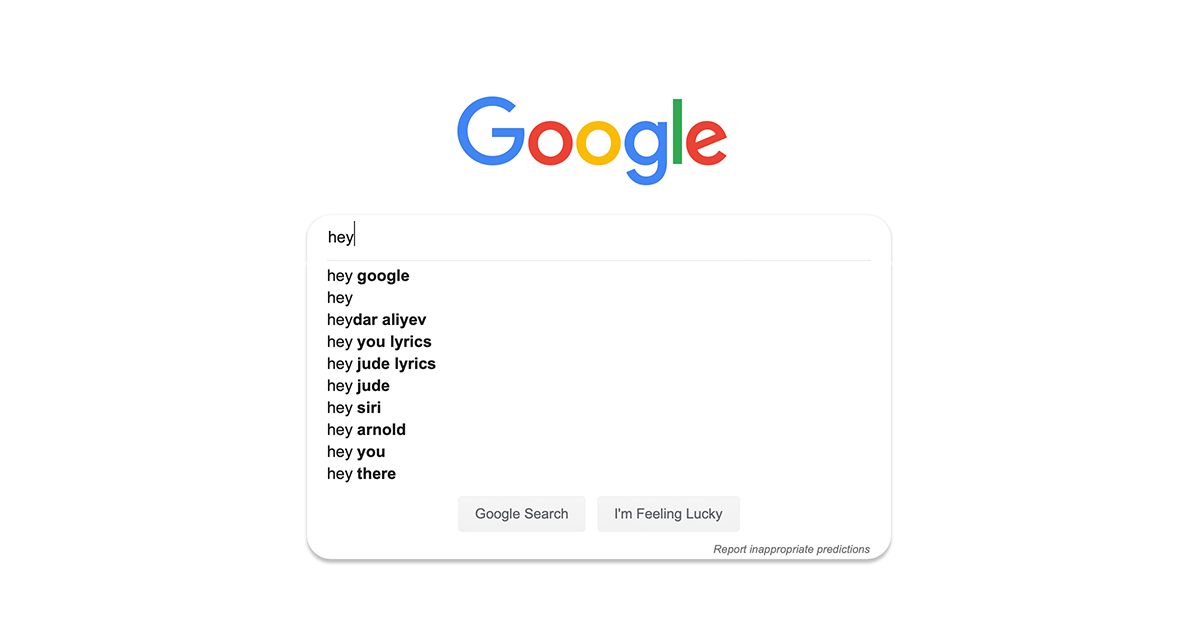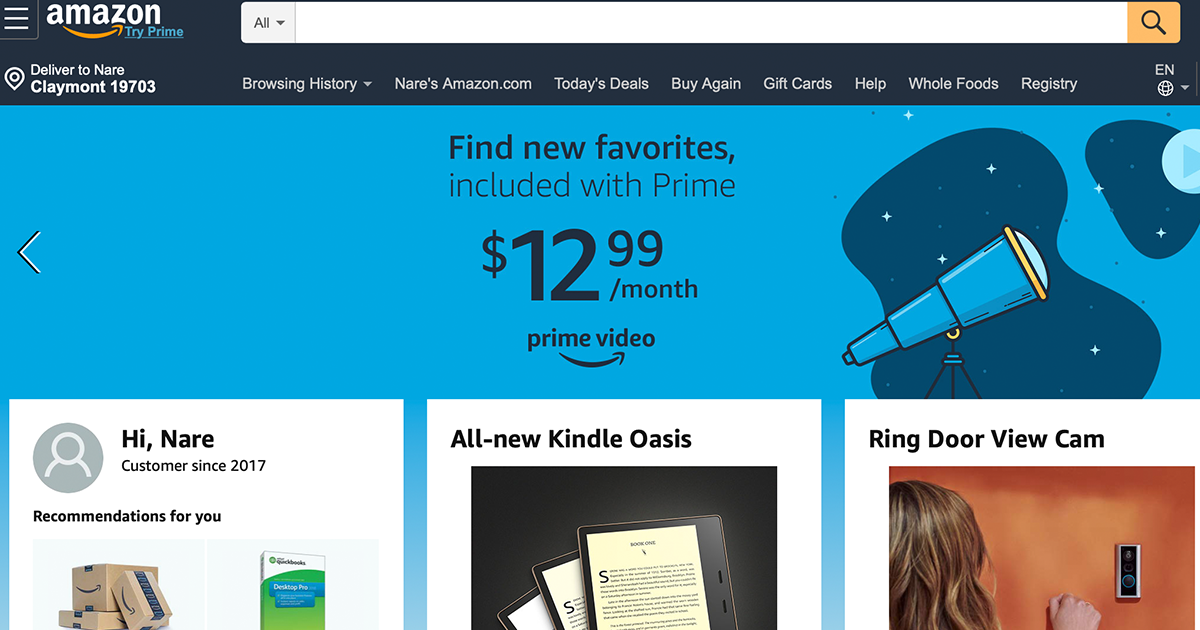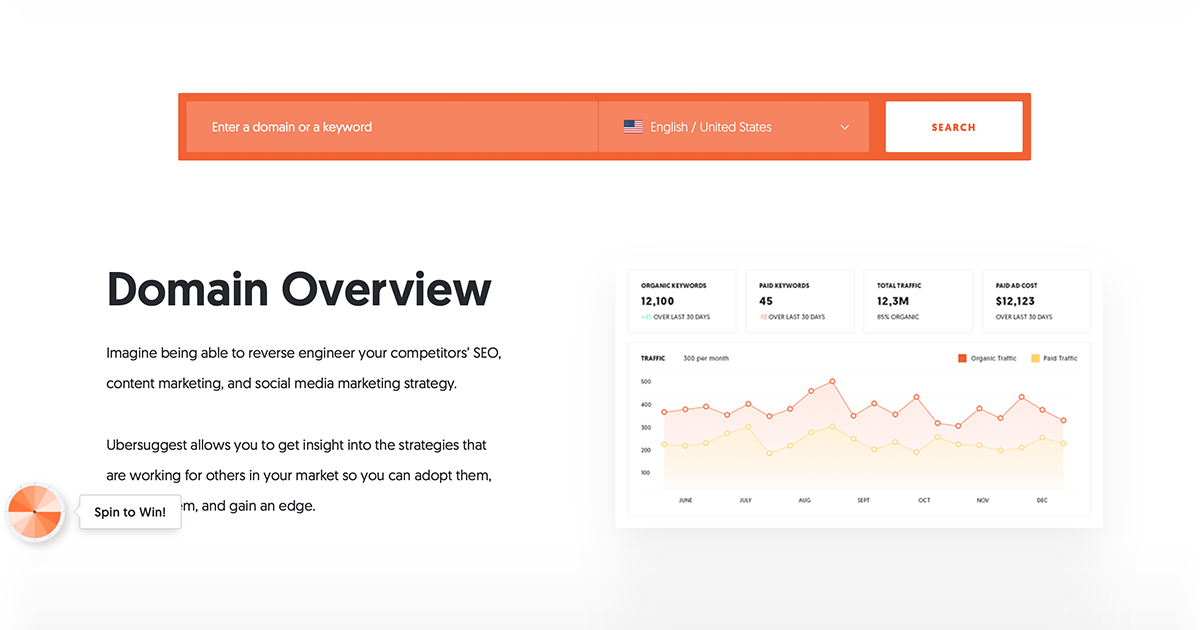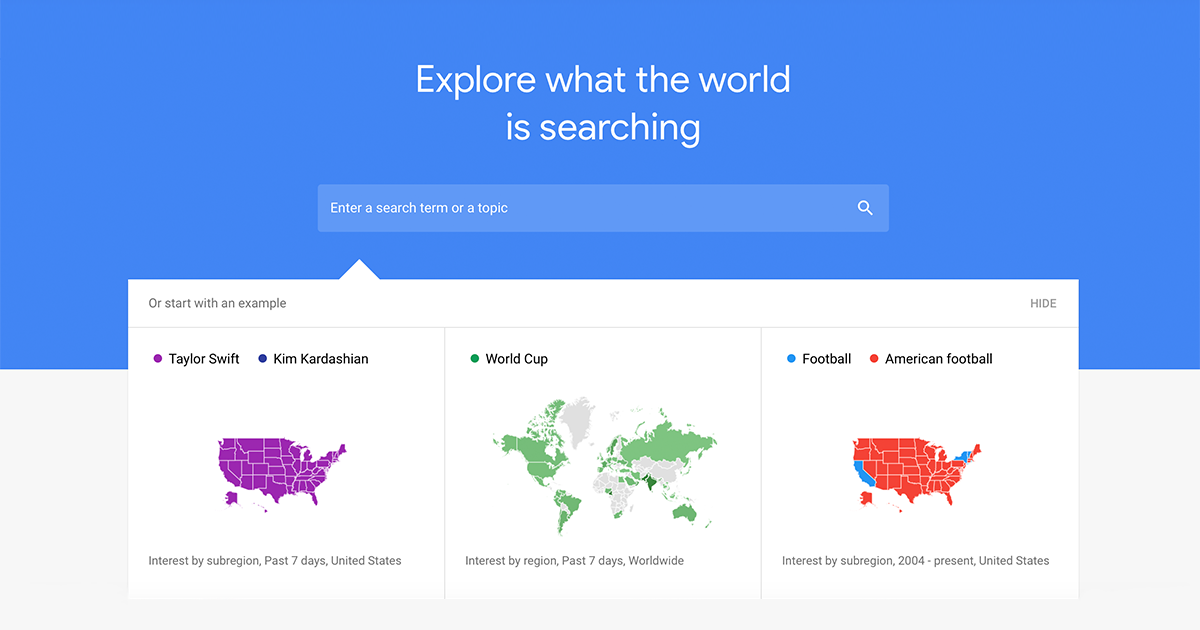Whether you are an entrepreneur, an in-house SEO keyword specialist, a freelancer, or an agency worker, you are constantly faced with the challenge of coming up with keywords that bring traffic. Typically, paid advertising specialists to start with a clear-cut idea about the products, services, or business aspects that they intend to promote, thus, have a certain direction prior to embarking on keyword research. On the other hand, as a search engine optimizer, often, your task is to come up with brand new keyword ideas on your own. This can be a bit of a challenge. You have to first learn your target audience’s language, then, align it with your business objectives and translate it into the search bots’ language.
So, how to get started? What tools and methods to use? How to make sure you don’t miss anything?
“Know Thy Business”
While this might sound obvious, learning the specifics of your business is the first step in successful keyword generation. The research and practice show that a lot of search engine optimization specialists fail at delivering high-quality results not because they do not know their craft but because they do not understand the peculiarities of their business. Being able to answer certain simple yet crucial questions can be the best starting point for keyword generation. Ask yourself:
- What is the industry in which you operate?
- What are the concrete products, services, or intangible values that you offer?
- How do you differ from your competitors?
- Who are your customers and why would they need you?
- What are the brand-specific features for which you want to be known?
You cannot position your business in the minds of your prospects, or optimize it for the indexing mechanisms of search bots if you don’t know who you are in the first place. Start your keyword research by first understanding your business, talking to your colleagues, or employees, then move on to learning the specific jargon that both consumers and businesses operating in your industry use. When it comes to idea generation, time spent on corporate introspection is never wasted.
Browse A Library (Niche Magazines)
The suggestion to go over industry-specific journals might sound a little bit time-consuming and irrelevant in the era of one-click online searches and social media domination. However, in order to stand out against the competition and come up with keywords that deliver results, it’s worth going the extra mile and referring to the primary sources.
The editors and industry experts that curate the content of these magazines are the ones, who really know both the industry-specific jargon and the target audience’s behavior/language.
Getting insights from these sources might help you find ideas that you would not find in your competitors’ touchpoints, but that can potentially invite your target audience. In case you are wondering, where exactly to find such sources, consider referring to the list of 21 web directories that the Search Engine Journal has compiled.
Test Google Autocomplete

I bet you love it when you start your online search and without finishing your sentence Google knows what you seek. The constantly improving machine learning algorithms that Google uses understand you better than you could expect. But how exactly do these algorithms understand you so well and how can you use them in your SEO keyword research?
The ML algorithms analyze and find patterns in the vast amount of user search data that Google has accumulated over time. Basically, they do simple keyword research, but on an enormous scale and with maximized precision. At this point, you may already be guessing that, besides conducting effective searches, you, as a keyword researcher can take advantage of this function to choose keywords that are aligned both with your SEO objectives and your target markets’ language.
Search Wikipedia
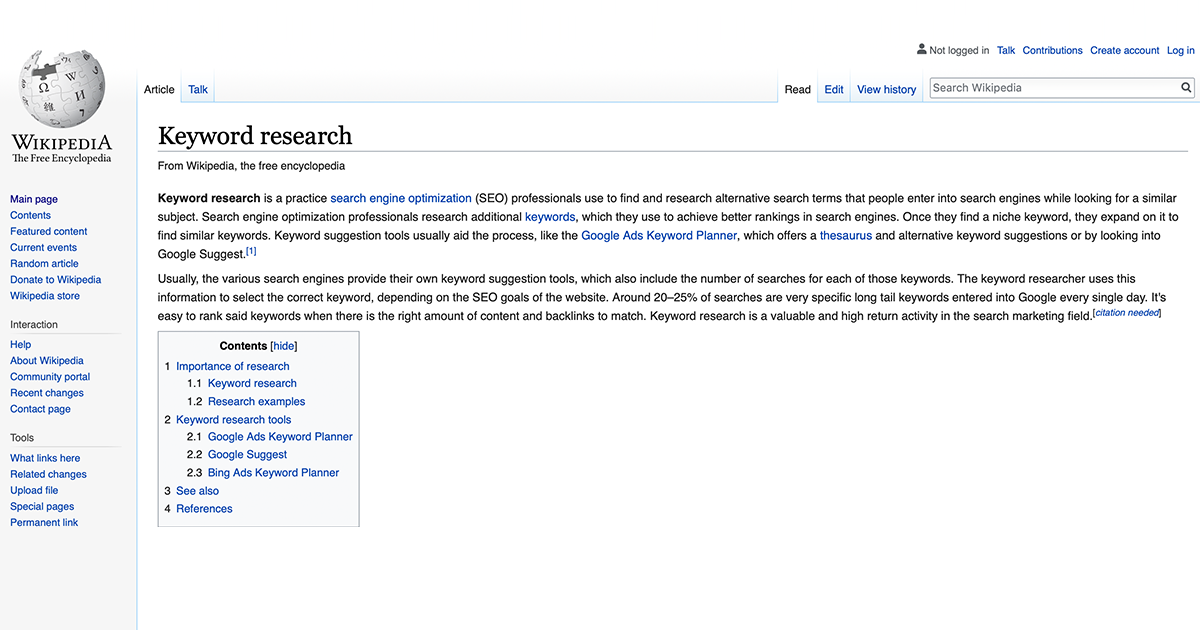
Almost everyone uses Wikipedia as a quick reference point to get an inkling about new concepts, phenomena, organizations and so on. You search for a term and one of the first search results that you encounter perhaps is the relevant Wikipedia page. Besides, getting some enlightening information from the source, as a savvy keyword researcher you can also get keyword ideas from it and strategically include these terms in your pages to improve your SERP results and appear next to the aforementioned Wikipedia page.
Look At Competitors’ Websites And Ads Online
While the analysis of competitors’ ads, content, and keywords is well-understood and widely used in paid search engine marketing (a.k.a PPC), it is often overlooked or misunderstood in organic content optimization. While in paid media, the idea is to find niche keywords that have a high reach and low competition, in search engine optimization, the main point is to find keywords that reflect what differentiates you from your competitors but are also industry-specific enough to show that your offer is within the same product category as your competitors’ offers. For this purpose, just a simple content analysis of both your immediate competitors’ and major industry players’ ads, websites, and social media content can give you valuable insights. In addition, paid media keyword tools, such as the keyword planner tool offered by Google AdWords can also be used strategically.
Read The News

Both digital news feeds and traditional newspapers can be valuable sources for keyword ideas. Just like industry journal editors, news journalists conduct extensive user research and testing before choosing their headlines and wording. On the other hand, search engine bots love keywords that appear in multiple headlines, especially in highly ranked publications. They see them as more relevant at a given period of time. As an SEO keyword researcher, you can take advantage of the “popularity” and “expertise” of these sources to choose relevant keywords from industry-specific news.
Search Amazon And Other Online Stores

Imagine a user who considers buying a certain product. Probably, their next step is to open Amazon’s website and conduct a search using a term that describes the product that they intend to purchase as precisely as possible. All of a sudden, they are offered similar products that match the description of their desired product, but that is presented using wording different from what they had initially searched. As online shoppers, they get happy to get these new options and they consider using these words in their successive searches to get more precise results. As an SEO keyword researcher, you too can take advantage of this and choose keywords based on these suggestions making sure that when the shoppers conduct their next search, your offer appears on their screens.
Search Ubersuggest

The free and paid tools aimed at assisting keyword research are abundant, but the majority of these tools fail to incorporate business-specific and contextual data. Hence, they can often be misleading for professionals. One tool that stands out in the crowd is Neil Patel’s Ubersuggest.
The platform does a great job at integrating and analyzing data from multiple sources and coming up with suggestions that can be put into context easily.
When used in line with the other keyword research tools mentioned above and below, Ubersuggest can be a valuable tool for checking keyword competitiveness without missing the context.
Check out Google Trends

Unsurprisingly, Google is most marketers’, developers’ and designers’ favorite company. The free tools that the company generously offers substantially facilitate their lives. Google Trends is one of such multipurpose tools that can be particularly useful for keyword generation. The common goal of any SEO keyword research is finding the terms that precisely convey the essence of a company’s offer, but that also match the terms that people in the company’s target market use when conducting a search. As an SEO keyword researcher, you might filter Google trends results (e.g. geographically, temporally, etc.) to get insights for your specific market’s search behavior and term popularity for products/categories in which you are interested.
Think Cross-Media

Search engine optimization is an activity that can never be executed effectively in isolation: it should always be aligned with the overall marketing communications strategy. While underused, the incorporation of cross-media insights in different processes that comprise the overall SEO strategy is extremely useful. In this context, industry-specific TV commercials, infomercials, podcasts, and outdoor ads can give interesting ideas for keywords. After all, these are some touchpoints that shape “consumers’ language” specific to your product category and, when it comes to keywords, speaking consumers’ language is the make-or-break point.
To cut the long story short, keyword generation is one of the most important processes in search engine optimization (SEO). Especially today, when search engine bots powered with Artificial Intelligence “crawl like humans”, meaning that they analyze and rank pages based on the relevance of their content for particular product categories and for particular target audiences. The process of idea generation can be challenging indeed, but, hopefully, the list of decision support tools provided above can help you come up with unique keywords that deliver traffic and conversions.


